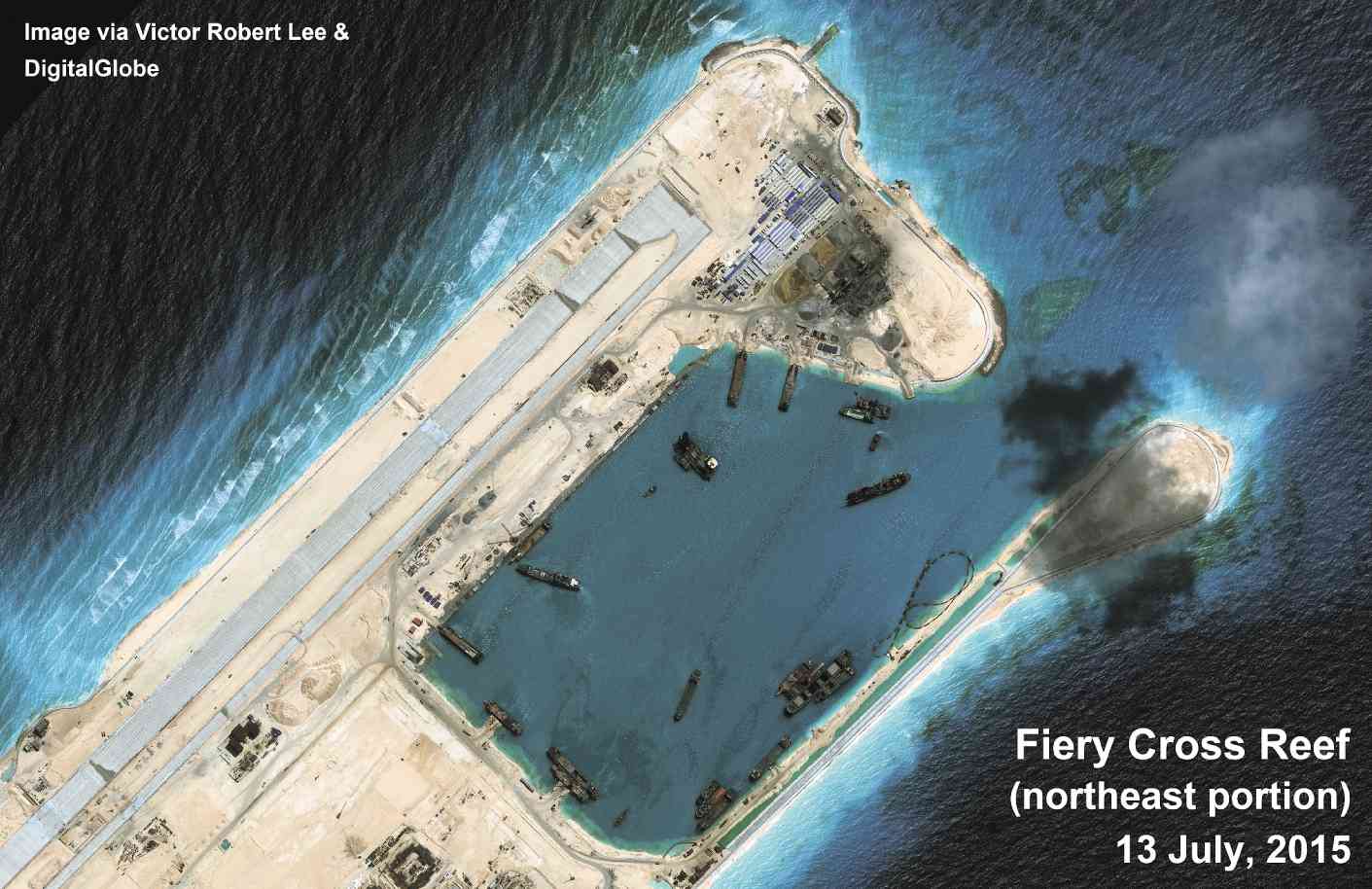
Photo from the air shows construction activities undertaken by China on Kagitingan Reef (Fiery Cross Reef), including an airstrip, in a disputed area in the South China Sea. The Philippines and China are among several countries disputing ownership of the reefs located on the Spratly Islands. PHOTO BY VICTOR ROBERT LEE AND DIGITALGLOBE
Majority of Filipinos think it is “not right” the government is simply letting China expand its military presence in the West Philippine Sea, a Social Weather Stations (SWS) survey showed.
In its third-quarter survey released on the eve of Chinese President Xi Jinping’s state visit to the country, SWS said the Filipinos maintain their anti-Chinese stance on the sea row issue.
The survey found that 84 percent of Filipinos said it was not right Manila simply lets Beijing build and fortify its military outposts in the disputed territories.
This is up by three points from 81 percent on SWS’ second-quarter poll.
The survey also found that the number of Filipinos who thought that it was right for the government to strengthen its military capability, especially the Philippine Navy, rose to 86 percent from the previous quarter’s 80 percent.
Those who believed it was right for the government to bring the West Philippine Sea disputes to international bodies for a peaceful judicial settlement dropped to 71 percent from the previous quarter’s 74 percent.
Nevertheless, 87 percent of Filipinos said it was important that the Philippines regained control of the West Philippine Sea islands occupied by China.
Those who said that it was important, 72 percent claimed that it was “very important”, 15 percent said it was “somewhat important”, one percent thought it was “somewhat not important” and another one percent thought it was not at all important. The remaining 10 percent were undecided.
Despite improved relations between the Philippines and China, the Asian giant still holds a negative impression among Filipinos.
SWS said that China was rated “poor” in the survey with -16, which is 19 points above its net trust in June which was rated “bad” with -35.
Net trust in China has been positive in only nine out of 47 surveys since SWS first surveyed it in August 1994, the polling firm noted.
SWS added that distrust in China was higher among those who were aware that Beijing created artificial islands, which is now being used as military airbases in the disputed waters.
Meanwhile, the country’s longtime ally, the United States, kept a “very good” rating with +59, just six points below from the second quarter survey.
Japan, Malaysia, and Israel, on the other hand, obtained a neutral net trust rating.
The latest survey was conducted from Sept. 15-23, using face-to-face interviews of 1,500 adults nationwide.
It had sampling error margins of ±3% for national percentages, and ±4% for Balance Luzon and ±6% for Metro Manila, the Visayas, and Mindanao.

